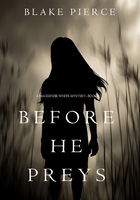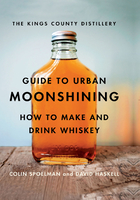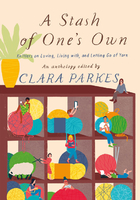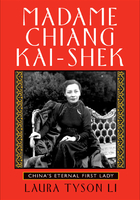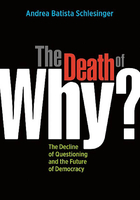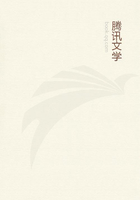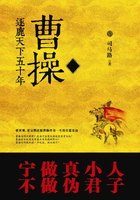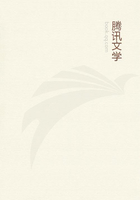Fodder
Or, as we said,
fother, I open
my arms for it
again. But first
to draw from the tight
vise of a stack
the weathered eaves
of the stack itself
falling at your feet,
last summer's tumbled
swathes of grass
and meadowsweet
multiple as loaves
and fishes, a bundle
tossed over half-doors
or into mucky gaps.
These long nights
I would pull hay
for comfort, anything
to bed the stall.
Bog Oak
A carter's trophy
split for rafters,
a cobwebbed, black,
long-seasoned rib
under the first thatch.
I might tarry
with the moustached
dead, the creel-fillers,
or eavesdrop on
their hopeless wisdom
as a blow-down of smoke
struggles over the half-door
and mizzling rain
blurs the far end
of the cart track.
The softening ruts
lead back to no
'oak groves', no
cutters of mistletoe
in the green clearings.
Perhaps I just make out
Edmund Spenser,
dreaming sunlight,
encroached upon by
geniuses who creep
'out of every corner
of the woodes and glennes'
towards watercress and carrion.
Anahorish
My 'place of clear water',
the first hill in the world
where springs washed into
the shiny grass
and darkened cobbles
in the bed of the lane.
Anahorish, soft gradient
of consonant, vowel-meadow,
after-image of lamps
swung through the yards
on winter evenings.
With pails and barrows
those mound-dwellers
go waist-deep in mist
to break the light ice
at wells and dunghills.
Servant Boy
He is wintering out
the back-end of a bad year,
swinging a hurricane-lamp
through some outhouse,
a jobber among shadows.
Old work-whore, slave-
blood, who stepped fair-hills
under each bidder's eye
and kept your patience
and your counsel, how
you draw me into
your trail. Your trail
broken from haggard to stable,
a straggle of fodder
stiffened on snow,
comes first-footing
the back doors of the little
barons: resentful
and impenitent,
carrying the warm eggs.
Land
I
I stepped it, perch by perch.
Unbraiding rushes and grass
I opened my right-of-way
through old bottoms and sowed-out ground
and gathered stones off the ploughing
to raise a small cairn.
Cleaned out the drains, faced the hedges,
often got up at dawn
to walk the outlying fields.
I composed habits for those acres
so that my last look would be
neither gluttonous nor starved.
I was ready to go anywhere.
II
This is in place of what I would leave,
plaited and branchy,
on a long slope of stubble:
a woman of old wet leaves,
rush-bands and thatcher's scollops,
stooked loosely, her breasts an open-work
of new straw and harvest bows.
Gazing out past
the shifting hares.
III
I sense the pads
unfurling under grass and clover:
if I lie with my ear
in this loop of silence
long enough, thigh-bone
and shoulder against the phantom ground,
I expect to pick up
a small drumming
and must not be surprised
in bursting air
to find myself snared, swinging
an ear-ring of sharp wire.
Gifts of Rain
I
Cloudburst and steady downpour now
for days.
Still mammal,
straw-footed on the mud,
he begins to sense weather
by his skin.
A nimble snout of flood
licks over stepping stones
and goes uprooting.
He fords
his life by sounding.
Soundings.
II
A man wading lost fields
breaks the pane of flood:
a flower of mud-
water blooms up to his reflection
like a cut swaying
its red spoors through a basin.
His hands grub
where the spade has uncastled
sunken drills, an atlantis
he depends on. So
he is hooped to where he planted
and sky and ground
are running naturally among his arms
that grope the cropping land.
III
When rains were gathering
there would be an all-night
roaring off the ford.
Their world-schooled ear
could monitor the usual
confabulations, the race
slabbering past the gable,
the Moyola harping on
its gravel beds:
all spouts by daylight
brimmed with their own airs
and overflowed each barrel
in long tresses.
I cock my ear
at an absence –
in the shared calling of blood
arrives my need
for antediluvian lore.
Soft voices of the dead
are whispering by the shore
that I would question
(and for my children's sake)
about crops rotted, river mud
glazing the baked clay floor.
IV
The tawny guttural water
spells itself: Moyola
is its own score and consort,
bedding the locale
in the utterance,
reed music, an old chanter
breathing its mists
through vowels and history.
A swollen river,
a mating call of sound
rises to pleasure me, Dives,
hoarder of common ground.
Toome
My mouth holds round
the soft blastings,
Toome, Toome,
as under the dislodged
slab of the tongue
I push into a souterrain
prospecting what new
in a hundred centuries'
loam, flints, musket-balls,
fragmented ware,
torcs and fish-bones,
till I am sleeved in
alluvial mud that shelves
suddenly under
bogwater and tributaries,
and elvers tail my hair.
Broagh
Riverback, the long rigs
ending in broad docken
and a canopied pad
down to the ford.
The garden mould
bruised easily, the shower
gathering in your heelmark
was the black O
in Broagh,
its low tattoo
among the windy boortrees
and rhubarb-blades
ended almost
suddenly, like that last
gh the strangers found
difficult to manage.
Oracle
Hide in the hollow trunk
of the willow tree,
its listening familiar,
until, as usual, they
cuckoo your name
across the fields.
You can hear them
draw the poles of stiles
as they approach
calling you out:
small mouth and ear
in a woody cleft,
lobe and larynx
of the mossy places.
The Backward Look
A stagger in air
as if a language
failed, a sleight
of wing.
A snipe's bleat is fleeing
its nesting-ground
into dialect,
into variants,
transliterations whirr
on the nature reserves –
little goat of the air,
of the evening,
little goat of the frost.
It is his tail-feathers
drumming elegies
in the slipstream
of wild goose
and yellow bittern
as he corkscrews away
into the vaults
that we live off, his flight
through the sniper's eyrie,
over twilit earthworks
and wallsteads,
disappearing among
gleanings and leavings
in the combs
of a fieldworker's archive.
A New Song
I met a girl from Derrygarve
And the name, a lost potent musk,
Recalled the river's long swerve,
A kingfisher's blue bolt at dusk
And stepping stones like black molars
Sunk in the ford, the shifty glaze
Of the whirlpool, the Moyola
Pleasuring beneath alder trees.
And Derrygarve, I thought, was just:
Vanished music, twilit water –
A smooth libation of the past
Poured by this chance vestal daughter.
But now our river tongues must rise
From licking deep in native haunts
To flood, with vowelling embrace,
Demesnes staked out in consonants.
And Castledawson we'll enlist
And Upperlands, each planted bawn –
Like bleaching-greens resumed by grass –
A vocable, as rath and bullaun.
The Other Side
I
Thigh-deep in sedge and marigolds,
a neighbour laid his shadow
on the stream, vouching
'It's as poor as Lazarus, that ground,'
and brushed away
among the shaken leafage.
I lay where his lea sloped
to meet our fallow,
nested on moss and rushes,
my ear swallowing
his fabulous, biblical dismissal,
that tongue of chosen people.
When he would stand like that
on the other side, white-haired,
swinging his blackthorn
at the marsh weeds,
he prophesied above our scraggy acres,
then turned away
towards his promised furrows
on the hill, a wake of pollen
drifting to our bank, next season's tares.
II
For days we would rehearse
each patriarchal dictum:
Lazarus, the Pharaoh, Solomon
and David and Goliath rolled
magnificently, like loads of hay
too big for our small lanes,
or faltered on a rut –
'Your side of the house, I believe,
hardly rule by the Book at all.'
His brain was a whitewashed kitchen
hung with texts, swept tidy
as the body o' the kirk.
III
Then sometimes when the rosary was dragging
mournfully on in the kitchen
we would hear his step round the gable
though not until after the litany
would the knock come to the door
and the casual whistle strike up
on the doorstep. 'A right-looking night,'
he might say, 'I was dandering by
and says I, I might as well call.'
But now I stand behind him
in the dark yard, in the moan of prayers.
He puts a hand in a pocket
or taps a little tune with the blackthorn
shyly, as if he were party to
lovemaking or a stranger's weeping.
Should I slip away, I wonder,
or go up and touch his shoulder
and talk about the weather
or the price of grass-seed?
Tinder
(from A Northern Hoard)
We picked flints,
Pale and dirt-veined,
So small finger and thumb
Ached around them;
Cold beads of history and home
We fingered, a cave-mouth flame
Of leaf and stick
Trembling at the mind's wick.
We clicked stone on stone
That sparked a weak flame-pollen
And failed, our knuckle joints
Striking as often as the flints.
What did we know then
Of tinder, charred linen and iron,
Huddled at dusk in a ring,
Our fists shut, our hope shrunken?
What could strike a blaze
From our dead igneous days?
Now we squat on cold cinder,
Red-eyed, after the flames' soft thunder
And our thoughts settle like ash.
We face the tundra's whistling brush
With new history, flint and iron,
Cast-offs, scraps, nail, canine.
The Tollund Man
I
Some day I will go to Aarhus
To see his peat-brown head,
The mild pods of his eyelids,
His pointed skin cap.
In the flat country nearby
Where they dug him out,
His last gruel of winter seeds
Caked in his stomach,
Naked except for
The cap, noose and girdle,
I will stand a long time.
Bridegroom to the goddess,
She tightened her torc on him
And opened her fen,
Those dark juices working
Him to a saint's kept body,
Trove of the turfcutters'
Honeycombed workings.
Now his stained face
Reposes at Aarhus.
II
I could risk blasphemy,
Consecrate the cauldron bog
Our holy ground and pray
Him to make germinate
The scattered, ambushed
Flesh of labourers,
Stockinged corpses
Laid out in the farmyards,
Tell-tale skin and teeth
Flecking the sleepers
Of four young brothers, trailed
For miles along the lines.
III
Something of his sad freedom
As he rode the tumbril
Should come to me, driving,
Saying the names
Tollund, Grauballe, Nebelgard,
Watching the pointing hands
Of country people,
Not knowing their tongue.
Out there in Jutland
In the old man-killing parishes
I will feel lost,
Unhappy and at home.
Nerthus
For beauty, say an ash-fork staked in peat,
Its long grains gathering to the gouged split;
A seasoned, unsleeved taker of the weather
Where kesh and loaning finger out to heather.
Wedding Day
I am afraid.
Sound has stopped in the day
And the images reel over
And over. Why all those tears,
The wild grief on his face
Outside the taxi? The sap
Of mourning rises
In our waving guests.
You sing behind the tall cake
Like a deserted bride
Who persists, demented,
And goes through the ritual.
When I went to the Gents
There was a skewered heart
And a legend of love. Let me
Sleep on your breast to the airport.
Mother of the Groom
What she remembers
Is his glistening back
In the bath, his small boots
In the ring of boots at her feet.
Hands in her voided lap,
She hears a daughter welcomed.
It's as if he kicked when lifted
And slipped her soapy hold.
Once soap would ease off
The wedding ring
That's bedded forever now
In her clapping hand.
Summer Home
I
Was it wind off the dumps
or something in heat
dogging us, the summer gone sour,
a fouled nest incubating somewhere?
Whose fault, I wondered, inquisitor
of the possessed air.
To realize suddenly,
whip off the mat
that was larval, moving –
and scald, scald, scald.
II
Bushing the door, my arms full
of wild cherry and rhododendron,
I hear her small lost weeping
through the hall, that bells and hoarsens
on my name, my name.
O love, here is the blame.
The loosened flowers between us
gather in, compose
for a May altar of sorts.
These frank and falling blooms
soon taint to a sweet chrism.
Attend. Anoint the wound.
III
Oh we tented our wound all right
under the homely sheet
and lay as if the cold flat of a blade
had winded us.
More and more I postulate
thick healings, like now
as you bend in the shower
water lives down the tilting stoups of your breasts.
IV
With a final
unmusical drive
long grains begin
to open and split
ahead and once more
we sap
the white, trodden
path to the heart.
V
My children weep out the hot foreign night.
We walk the floor, my foul mouth takes it out
On you and we lie stiff till dawn
Attends the pillow, and the maize, and vine
That holds its filling burden to the light.
Yesterday rocks sang when we tapped
Stalactites in the cave's old, dripping dark –
Our love calls tiny as a tuning fork.
Serenades
The Irish nightingale
Is a sedge-warbler,
A little bird with a big voice
Kicking up a racket all night.
Not what you'd expect
From the musical nation.
I haven't even heard one –
Nor an owl, for that matter.
My serenades have been
The broken voice of a crow
In a draught or a dream,
The wheeze of bats
Or the ack-ack
Of the tramp corncrake
Lost in a no-man's-land
Between combines and chemicals.
So fill the bottles, love,
Leave them inside their cots,
And if they do wake us, well,
So would the sedge-warbler.
Shore Woman
Man to the hills, woman to the shore.
Gaelic proverb
I have crossed the dunes with their whistling bent
Where dry loose sand was riddling round the air
And I'm walking the firm margin. White pocks
Of cockle, blanched roofs of clam and oyster
Hoard the moonlight, woven and unwoven
Off the bay. At the far rocks
A pale sud comes and goes.
Under boards the mackerel slapped to death
Yet still we took them in at every cast,
Stiff flails of cold convulsed with their first breath.
My line plumbed certainly the undertow,
Loaded against me once I went to draw
And flashed and fattened up towards the light.
He was all business in the stern. I called
'This is so easy that it's hardly right,'
But he unhooked and coped with frantic fish
Without speaking. Then suddenly it lulled,
We'd crossed where they were running, the line rose
Like a let-down and I was conscious
How far we'd drifted out beyond the head.
'Count them up at your end,' was all he said
Before I saw the porpoises' thick backs
Cartwheeling like the flywheels of the tide,
Soapy and shining. To have seen a hill
Splitting the water could not have numbed me more
Than the close irruption of that school,
Tight viscous muscle, hooped from tail to snout,
Each one revealed complete as it bowled out
And under.
They will attack a boat.
I knew it and I asked him to put in
But he would not, declared it was a yarn
My people had been fooled by far too long
And he would prove it now and settle it.
Maybe he shrank when those sloped oily backs
Propelled towards us: I lay and screamed
Under splashed brine in an open rocking boat,
Feeling each dunt and slither through the timber,
Sick at their huge pleasures in the water.
I sometimes walk this strand for thanksgiving
Or maybe it's to get away from him
Skittering his spit across the stove. Here
Is the taste of safety, the shelving sand
Harbours no worse than razor-shell or crab –
Though my father recalls carcasses of whales
Collapsed and gasping, right up to the dunes.
But tonight such moving sinewed dreams lie out
In darker fathoms, far beyond the head.
Astray upon a debris of scrubbed shells
Between parched dunes and salivating wave,
I have rights on this fallow avenue,
A membrane between moonlight and my shadow.
Limbo
Fishermen at Ballyshannon
Netted an infant last night
Along with the salmon.
An illegitimate spawning,
A small one thrown back
To the waters. But I'm sure
As she stood in the shallows
Ducking him tenderly
Till the frozen knobs of her wrists
Were dead as the gravel,
He was a minnow with hooks
Tearing her open.
She waded in under
The sign of her cross.
He was hauled in with the fish.
Now limbo will be
A cold glitter of souls
Through some far briny zone.
Even Christ's palms, unhealed,
Smart and cannot fish there.
Bye-Child
He was discovered in the henhouse where she had confined him.
He was incapable of saying anything.
When the lamp glowed,
A yolk of light
In their back window,
The child in the outhouse
Put his eye to a chink –
Little henhouse boy,
Sharp-faced as new moons
Remembered, your photo still
Glimpsed like a rodent
On the floor of my mind,
Little moon man,
Kennelled and faithful
At the foot of the yard,
Your frail shape, luminous,
Weightless, is stirring the dust,
The cobwebs, old droppings
Under the roosts
And dry smells from scraps
She put through your trapdoor
Morning and evening.
After those footsteps, silence;
Vigils, solitudes, fasts,
Unchristened tears,
A puzzled love of the light.
But now you speak at last
With a remote mime
Of something beyond patience,
Your gaping wordless proof
Of lunar distances
Travelled beyond love.
Good-night
A latch lifting, an edged den of light
Opens across the yard. Out of the low door
They stoop into the honeyed corridor,
Then walk straight through the wall of the dark.
A puddle, cobble-stones, jambs and doorstep
Are set steady in a block of brightness.
Till she strides in again beyond her shadows
And cancels everything behind her.
Fireside
Always there would be stories of lights
hovering among bushes or at the foot
of a meadow; maybe a goat with cold horns
pluming into the moon; a tingle of chains
on the midnight road. And then maybe
word would come round of that watery
art, the lamping of fishes, and I'd be
mooning my flashlamp on the licked black pelt
of the stream, my left arm splayed to take
a heavy pour and run of the current
occluding the net. Was that the beam
buckling over an eddy or a gleam
of the fabulous? Steady the light
and come to your senses, they're saying good-night.
Westering
in California
I sit under Rand McNally's
'Official Map of the Moon' –
The colour of frogskin,
Its enlarged pores held
Open and one called
'Pitiscus' at eye level –
Recalling the last night
In Donegal, my shadow
Neat upon the whitewash
From her bony shine,
The cobbles of the yard
Lit pale as eggs.
Summer had been a free fall
Ending there,
The empty amphitheatre
Of the west. Good Friday
We had started out
Past shopblinds drawn on the afternoon,
Cars stilled outside still churches,
Bikes tilting to a wall;
We drove by,
A dwindling interruption,
As clappers smacked
On a bare altar
And congregations bent
To the studded crucifix.
What nails dropped out that hour?
Roads unreeled, unreeled
Falling light as casts
Laid down
On shining waters.
Under the moon's stigmata
Six thousand miles away,
I imagine untroubled dust,
A loosening gravity,
Christ weighing by his hands.

